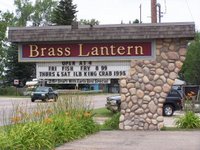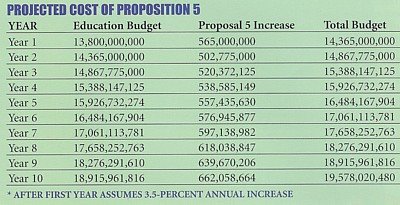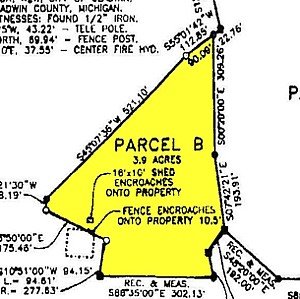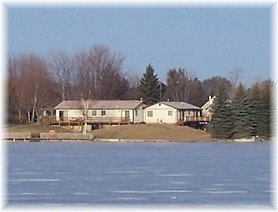Tuesday, December 26, 2006
"Tis the Season" to Buy a Second Home!
Many people don’t think about shopping for a second home in these cold winter months, especially if they are looking to buy waterfront. BUT if you are looking to get a little more of a bargain, then "Tis the Season" to be shopping.
Typically real estate slows down as the months get colder. This is especially true at the beginning of the year, after the holidays have passed and many peoples budgets are a little tighter. During this time many sellers will be more flexible on their price, knowing that it’s not the prime season to sell.
With second homes, many owners don’t like the idea of having to pay for the high cost of heating during these cold months, if the house isn’t occupied. This is even more true with the higher cost of fuel. Often owners will get the property winterized to save money while others will often leave their homes (or cottages) lightly heated to prevent drywall from cracking or to keep other things from shrinking or expanding from the change in temperature.
Also, with today’s job market (especially here in Michigan, with the auto industry being in trouble), many people are looking to get out from under the extra payment of a second home. If a second home owner experiences a job lose or cut in pay, they often can’t they afford to keep their second home mortgage. When this occurs, sellers can sometimes find themselves in a major financial pinch. In some cases they may need to unload that second home in a hurry to prevent foreclosure. Therefore, they are more willing to take a cut on the fair market value price to move the property more quickly.
Another situation that I often run into is a retired couple (or person) deciding to sell their second home to get rid of the responsibility of maintaining two properties. This can often be a burden when health is failing or they simply don’t find the time or have desire to visit their second home anymore. Another reason might be the need for the extra money because of the lack of adequate income from retirement. Depending on their situation, they may or may not be as flexible on their selling price.
Some minor disadvantages of buying a second home during the colder months can range from discomfort of looking at homes (sometimes unheated) in the colder weather, to not knowing what the property actually looks like during the warmer seasons. If you are looking to buy waterfront property, in most cases (in this region of the U.S) the lakes and rivers can often be frozen over and you may not be able to get an idea of what the property might be like during the warmer months. The key to this is to do some research or have the seller (or real estate agent) provide some current photos of the property (and the waterfront) taken during the warmer months of the year. You’ll have to be the judge on whether you are comfortable with the information that is (or is not) provided, so that you can make an educated choice on whether you should entertain making an offer on a property. Sometimes you may want to wait until the spring to make your decision and hope that the property is still available at that time.
As for the advantages, you may be able to pick up a property at a much better price than you would during the prime selling season. Also, since the market is slower during these months, there will be less people looking at homes, therefore minimizing your chances of competing against other potential buyers. This creates a great buyers market for you!
Monday, December 25, 2006
Merry Chrstmas!
I just made a total elf of myself. Check me out by clicking the link below. http://www.elfyourself.com/?userid=e93d72e7e2ac7453b81bc59G06122420
Of course, I had to Elf Jim to: http://www.elfyourself.com/?userid=87ac997a015cf34c82d5336G06122508
Merry Chrstmas!
Tuesday, December 12, 2006
And... Another Nice Buck Taken!
Sunday, December 03, 2006
Gladwin Parade of Lights! What a BEAUTIFUL Show!
 Here comes the fire trucks! (The fire truck below, is from Butman Twp, up in Sugar Springs).
Here comes the fire trucks! (The fire truck below, is from Butman Twp, up in Sugar Springs). HOOONK! HOOOONK! Goes the Fire Truck!
HOOONK! HOOOONK! Goes the Fire Truck!Here comes Santa Clause with his lit up raindeer & slay!
 What a beautiful night to enjoy the lights down at the city park!
What a beautiful night to enjoy the lights down at the city park! Hey! It's Ronald McDonald!
Hey! It's Ronald McDonald! Here's Clifford, the Big Red Dog!
Here's Clifford, the Big Red Dog! The evening was wrapped up with some beautiful fireworks at the city park. There's nothing like seeing fireworks in a winter winderland of Christmas Lights and Snow!
The evening was wrapped up with some beautiful fireworks at the city park. There's nothing like seeing fireworks in a winter winderland of Christmas Lights and Snow!Friday, December 01, 2006
More pictures of the 9 point buck
Wednesday, November 29, 2006
Congratulations to Arthur Wiard!
Saturday, November 25, 2006
WOW! L@@K at this Beautiful 9 Point Buck!!!
 Lynn took this beautiful 9 point in Northern Clare County on Nov 25th, 2006, in the morning. This awesome buck has approximately a 24 inch inside spread. At the DNR check station in Gladwin, this buck was estimated to be 5 1/2 years old.
Lynn took this beautiful 9 point in Northern Clare County on Nov 25th, 2006, in the morning. This awesome buck has approximately a 24 inch inside spread. At the DNR check station in Gladwin, this buck was estimated to be 5 1/2 years old. What a beautiful animal and a once in a lifetime opportunity!
What a beautiful animal and a once in a lifetime opportunity!I actually saw this buck in the back of their truck when I passed by them on M-18. I figured they might pull into the DNR office at Gladwin... and they did. I took these pictures at the DNR office at around noon on Saturday.
 While was at the office, Mike Simrae pulled in with this nice 8 point and the rack of another nice deer (a nine point). Both were taken this season!
While was at the office, Mike Simrae pulled in with this nice 8 point and the rack of another nice deer (a nine point). Both were taken this season!Congratulations to both of you!
Visit my Outdoor Life Page for more outdoor information and to visit the trophy room! http://acreage.gladwinrealestateagent.com/trophypage
Monday, November 20, 2006
Tip of the day.... Toilet Dating!
 Here is a handy bit of information that I learned.
Here is a handy bit of information that I learned.Toilet dating....you ask? If you are wondering the age of a house and you think it may still have an original toilet in it... look for the date stamp inside of the toilet tank. Yup...most of them have it! Look for the date and usually the house age will be pretty close.... at least within a year or two.
Thursday, November 16, 2006
My deer hunting update...
As for my update.....
 Well... nothing yet! I saw a nice buck yesterday morning. It was the first deer I saw.... However, he wouldn't come out from behind a batch of young birch trees. I could see him, but I wasn't comfortable taking a shot through all that brush and risk missing or worse, wounding him and not finding him. I like to wait for a more promising shot. If he would have continued straight on the path he was heading, he would have come out to a little bit of a clearing. But, he was following a doe, and she decided to head straight away from me and he followed. I never got a chance for a good shot! (DANG!)
Well... nothing yet! I saw a nice buck yesterday morning. It was the first deer I saw.... However, he wouldn't come out from behind a batch of young birch trees. I could see him, but I wasn't comfortable taking a shot through all that brush and risk missing or worse, wounding him and not finding him. I like to wait for a more promising shot. If he would have continued straight on the path he was heading, he would have come out to a little bit of a clearing. But, he was following a doe, and she decided to head straight away from me and he followed. I never got a chance for a good shot! (DANG!)I saw two other does yesterday morning and 2 more in the evening. Jim saw 6 deer yesterday evening....all does.
I went out again this morning. BRRRRR! Was it cold and windy! The weather was nothing like opening day! The wind was howling! I didn't think I'd see anything this morning, with that nasty wind. Most of the morning I didn't. At around 9:30, three does came across the field and slowed down to a nice walk about 80 yards away from my blind. I put up my gun and looked at all of their heads. No horns. I let them pass.
I'll go out again this evening... Probably around 3 pm or so. Hopefully the wind will simmer down by then.
Sunday, November 12, 2006
The Brass Lantern of Houghton Lake is Closing after 33 Years in business

 PRUDENVILLE - The Brass Lantern restaurant, recognized by thousands of Houghton Lakers as a beacon of warmth, friendship and fine dining, has served its last meal.
PRUDENVILLE - The Brass Lantern restaurant, recognized by thousands of Houghton Lakers as a beacon of warmth, friendship and fine dining, has served its last meal.The popular establishment closed Sunday after serving up its diners.
After an auction next Sunday of all contents, including some lovely antique items, the familiar building will be torn down to make room for a and a new Walgreen's.
Here is the link to the whole article: http://www.mlive.com/entertainment/bctimes/index.ssf?/base/features-0/115738302675540.xml&coll=4
However, this article is a little off on it's date. The Brass Lantern was supposed to close in September, but was postponed. The last day that the Brass Lantern was actually open, was yesterday Nov 11th, 2006. I know this, because Jim, the kids and I ate there Friday night (the same night as the snow storm) and we were then informed that Saturday was it's last day. The waitress broke the news to us. Partly because they were out of a lot of menu items. (There won't be any ordering chicken for dinner that night. They were OUT!)
It will be a shame to see it go. The restaurant was a long time landmark in Houghton Lake, with it's warm up north atmosphere and good food.
It will be torn down in the near future to make way for a new Walgreens. What a shame... History lost...
Auction to be held Saturday, November 18th, 2006. Visit John Peck Auctions for more details: http://www.johnpeckauctions.com/upcoming.html
Saturday, November 11, 2006
A Tribute to the Edmund Fitzgerald
The Edmund Fitzgerald took the lives of twenty-nine men over 30 years ago, affecting dozens of families and a countless number of friends and comrades of the shipping industry. The Edmund Fitzgerald is lost, but not forgotten.
Saturday, November 04, 2006
Halloween Whitetail

Friday, November 03, 2006
Jim is coming back to Real Estate!!!!
 Whose Jim, you ask? My husband, of course!
Whose Jim, you ask? My husband, of course!I'm happy to say that Jim has decided to get back into real estate. He has been a licensed real estate agent since 1998 and decided to take a break in 2002, when he actively took the position of Fire Chief for Butman Township in northern Gladwin County/Sugar Springs area.
He's still the fire chief, but has missed being part of Kehoe Realty, and decided to come back! He's also a full time paramedic for Gladwin County. We'll be working together to help better serve our buyers and sellers. As partners in real estate, we feel that we can better serve our customers and clients, especially during the busy months when scheduling times get busy.
Feel free to drop Jim and email or a call, welcoming him back to the business!
Tuesday, October 31, 2006
Why Proposal 5 Is Wrong for Our Students and Our State

Real the full article here (PDF): http://www.mirealtors.com/news/realtor/documents/nov066.pdf
Thursday, October 26, 2006
Home prices plunge by most in 35 years

I thought this was an interesting article, worth posting on the blog.
Home prices plunge by most in 35 years
By MARTIN CRUTSINGER, AP Economics Writer
The median price of a new home plunged in September by the largest amount in more than 35 years, even as the pace of sales rebounded for a second month.
The Commerce Department reported that the median price for a new home sold in September was $217,100, a drop of 9.7 percent from September 2005. It was the lowest median price for a new home since September 2004 and the sharpest year-over-year decline since December 1970. The weakness in new home prices was even sharper than a 2.5 percent fall in the price of existing homes last month, which had been the biggest drop on record.
For the rest of the article: http://news.yahoo.com/s/ap/20061026/ap_on_bi_go_ec_fi/economy&printer=1
The Real Estate Crunch, 2006

Well, the market isn’t what it was a few years ago. A softer market is here and some sellers are in for a long hall while waiting for their homes to sell. Don’t get me wrong. Things are still selling, but with the softer market and an extremely high inventory of homes for sale, sellers have to be competitive in their pricing. Sometimes price alone, will not help sell a place. There are still the general rules to consider: location, location, location and then the need to buy and then the price. With the high inventory of homes for sale, buyers have a lot more to choose from and often at discounted prices, to the disadvantage of many sellers. In most cases, a seller has to take a bite on their asking price when an offer is made. Buyers are shopping around for the best deal these days. If their price isn’t accepted on one deal, they can simply go down the road and make an offer on another place. Sellers are often seeing a "take it of leave it" approach when offers are made. Here in northern Mid Michigan (Gladwin and Clare Counties), we are seeing this pattern quite a bit. Sellers are taking anywhere from an 8 to 14 percent hit on their original asking price. In my area, sellers are getting approximately 89% of their original asking price, with the average days on market being 203 day. This takes into account both waterfront and off water homes, with waterfront properties tending to sell much faster than off water homes. To see graphs and reports, please click here to view this entire article.
Wednesday, October 25, 2006
Saturday, October 14, 2006
I just had to add this about the 40 acres! A Nice 8 Point Buck taken last night!
 I just had to add this about the 40 acres that I just listed. This beautiful 8 point buck was shot with a bow at dusk Oct 13th, 2006. They tracked and found this big guy this morning. This is the second 8 point to be taken off the property in less than a week! This is the bigger buck of the two taken. You just can't beat the deer hunting on this land.
I just had to add this about the 40 acres that I just listed. This beautiful 8 point buck was shot with a bow at dusk Oct 13th, 2006. They tracked and found this big guy this morning. This is the second 8 point to be taken off the property in less than a week! This is the bigger buck of the two taken. You just can't beat the deer hunting on this land. SOLD!!!! 20 Acres on the Cedar River!
Wednesday, October 04, 2006
Things to Consider When Buying a Home by Raynor James
Things to Consider When Buying a Home
When most people think about buying a home, the immediately start envisioning how nice it will be to own the property, the life events that will occur there, how they can improve it to meet their tastes and so on. This is a natural tendency, but it is the wrong way to look at a home.
When purchasing a property, you need to ditch the emotions. It is time to be cold and calculating. Yes, the property will be part of your life for at least a few years, but you eventually are going to need to resell it. You want that sale to be at a profit. Here are a couple of guidelines that will help you avoid a bad decision.
1. Do not purchase the most expensive home on the block. Try to purchase near the low end and upgrade. This will help you realize appreciation on your property and grab a nice slice of profit when selling.
2. Always try to buy in the best school district. This is true even if you do not have kids and have no intention of every having them. Remember, potential buyers of your property may very well have children and they will be looking in areas with good schools.
3. Whenever possible, try to stick to three or more bedroom properties. Yes, that two bedroom is cute, but most buyers are looking for something bigger. Again, we come back to the issue of kids.
4. Buy a newer home. The older a home, the more potential buyer's will be suspicious there is something wrong with the property. The only real exception to this is an older home that is unique or has been extensively remodeled.
5. Location, location, location. As if you did not know this one. It is the oldest cliché in real estate, but also the most accurate. Never, ever buy in a bad location. Always buy in the best location you can possible afford.
6. Go ahead and buy! Property prices fluctuate a bit, but property is always a good investment over time. Don't spend endless amounts of time waiting for the market to drop to some price level you have in mind. It may not.
Obviously, there are lots of issues that go into purchasing a home. If you stick to these basic guidelines, however, you should do fine.
About the Author
Raynor James is with the site - FSBOAmerica.org - FSBO homes for sale by owner.
Thursday, September 28, 2006
Thank You! Realtor of the Year for Clare/Gladwin - Ivie Baker
 September was a fun and interesting month. On Sept 24-27th, most of the agents at the Kehoe Realty office (and myself), went down to Grand Rapids for the annual Michigan Association of Realtors Conference for classes, networking and entertainment.
September was a fun and interesting month. On Sept 24-27th, most of the agents at the Kehoe Realty office (and myself), went down to Grand Rapids for the annual Michigan Association of Realtors Conference for classes, networking and entertainment. I also received the highest honor as Realtor of the Year for the Clare/Gladwin Board of Realtors. I was very honored to receive this once in a lifetime award!
Saturday, June 03, 2006
Special Preview of Listings Coming Soon!
 This cute Country Chalet is nestled in a woodland setting within Sugar Springs Resort. Feel like you are way out in the country but still close to fun things to do! This home's property back up to commons area leading to the Sugar River & Lake Lancer. Fantastic view of the water. Wildlife at your back door! Deer, turkey, ducks and a wide variety of birds visiting frequently. This home features 3 bedrooms, 1.5 baths, living room with large fireplace, 1.5 car garage, full basement and a nice sunroom to watch the view. Preview a Virtual Tour of this home. Check back for a price on this home.
This cute Country Chalet is nestled in a woodland setting within Sugar Springs Resort. Feel like you are way out in the country but still close to fun things to do! This home's property back up to commons area leading to the Sugar River & Lake Lancer. Fantastic view of the water. Wildlife at your back door! Deer, turkey, ducks and a wide variety of birds visiting frequently. This home features 3 bedrooms, 1.5 baths, living room with large fireplace, 1.5 car garage, full basement and a nice sunroom to watch the view. Preview a Virtual Tour of this home. Check back for a price on this home. Another Sugar Springs Home!!! This one is also commons to Lake Lancer with a nice view of the water. Rent a dock right out your front door for quick access to the lake. Lakefront living without the lakefront taxes and lakefront prices. You can get a lot more for the price with this home. The same house right on the lake would be a lot more! This cozy bi-level has 3 bedrooms. The lower level is partly finished but it wouldn't take much to fully finish that level for a lot more living space! Price: $129,900 (Virtual Tour Coming Soon)
Another Sugar Springs Home!!! This one is also commons to Lake Lancer with a nice view of the water. Rent a dock right out your front door for quick access to the lake. Lakefront living without the lakefront taxes and lakefront prices. You can get a lot more for the price with this home. The same house right on the lake would be a lot more! This cozy bi-level has 3 bedrooms. The lower level is partly finished but it wouldn't take much to fully finish that level for a lot more living space! Price: $129,900 (Virtual Tour Coming Soon) Find out what Beautiful Sugar Springs has to offer by visiting my Sugar Springs web site at http://SugarSprings.GladwinRealEstateAgent.com
Call to make an appointment to preview these nice homes. I've got the keys!
 Commercially Zoned 3.9 acres in the city of Gladwin. Located next to the Brook (Adult Living Center). $45,000
Commercially Zoned 3.9 acres in the city of Gladwin. Located next to the Brook (Adult Living Center). $45,000
Monday, May 08, 2006
Real Estate Negotiation - Time Power by Steve Gillman
 One of the crucial elements of real estate negotiation is time. Understand and master the use of time, and you can buy a home for thousands less.
One of the crucial elements of real estate negotiation is time. Understand and master the use of time, and you can buy a home for thousands less. Here is one of the most important aspects of time:
Deadlines In Real Estate Negotiation
Time is of the essence. It even says as much on most real estate contracts. What does this mean? It means that whoever controls or understands the elements of time has the better negotiating position.
When I bought my first piece of property, I asked the seller why he was selling. He said he was moving. I asked him when he was moving, and he said in a couple weeks. He also mentioned that he wanted to close the sale before he moved. I offered him 20% less than he was asking, and he accepted.
He gave away too much information. Specifically, he gave away his deadline. One of the most important things to understand in real estate negotiation is deadlines. The two specific things to remember are: 1. Don't give away your deadline(s), and 2. Find the other side's deadline(s).
Find out whatever you can about any relevant deadlines. Sometimes there isn't a clear deadline, or there are several deadlines for different parts of the negotiation. Whatever the case, the more information you can gather about those deadlines, the better.
How do you use that information once you have it? The crudest method is to simply delay and wait until the last moment to negotiate. This only works if the other side doesn't walk away, and if your own deadline permits it. It also requires that you don't violate any of the terms of your purchase offer, so the seller can't sell to someone else.
A bit of sophistication is required to use this information effectively. You may want to start by identifying what is most important to you in the negotiation. For example, is the price or the terms the crucial element for you?
Let's assume that price is most important to you. When you wrote the offer, you put some price on it, but you have inspections and other contingencies that allow for everything to be renegotiated. The process of inspections and negotiations ties up the property, so your competition is excluded for the moment. Then you learn that owner really wants to sell by the start of the school year, because he will be moving with his children.
Work on everything else in the negotiations except the price. Have inspections done, agree on what will be included with the property, etc. As the seller's "deadline" approaches, he will be getting anxious to close the deal. Then you let him know you're ready to close quickly. Of course, you'll need the price adjusted due to the results of the inspections.
At this point the seller has the choice of throwing away the whole deal. This means starting over, and not moving when he wanted to. Alternately, he can be happy that he got what he wants most - a quick close. This means giving you your price.
This points up the importance of getting information on the other's deadline, but also the importance of not revealing your own. When I was a real estate agent I heard the story of a man who sold his property for a large profit. He had to pay $80,000 in capital gains taxes unless he rolled the money into another property, as a "title 31 exchange." He had 60 days to close on the new property.
Imagine the abuse he would open himself to if, with ten days to go, the seller learned of his deadline and the cost of missing it. He could threaten to delay closing unless the buyer paid $10,000 extra for some old coin-operated washing machines, for example. Overpay by a few thousand, or lose $80,000. What do you think he would do? You can see the power of time in real estate negotiation.
About the Author
Steve Gillman wrote the book: Cheap Homes - How To Save Thousands Buying Your Next House. To learn more about time, and the other elements of real estate negotiation, and to see a photo of the beautiful home he and his wife bought for $17,500, visit http://www.YourCheapHome.com
Friday, April 21, 2006
The Walk

Let's take a small break from Real Estate for a moment.
I thought I'd have a little fun and make a narration of one of my walks. This was made in late March when it was still snowing, but the ice was melting and the birds were singing. Click HERE to go for a walk with Angel and I.
http://www.gladwinrealestateagent.com/thewalk
Choosing the Right Home - A Home Inspectors Perspective. by Bruce Lunsford
I've been a full time home inspector now for over 16 years and I'm still surprised by how often people make preventable mistakes when choosing a potential home to buy. The purpose of this article is to give potential homebuyers some ideas and guidelines to evaluate potential homes. Hopefully we can prevent some unpleasant surprises during your home inspection.
This in no way will replace a professional home inspection, but choosing the correct home from the start can save a lot of time, money and aggravation. Too many times I've inspected homes with major defects that could have been visible to even the untrained eye. What we'll do here is cover some of the basics of evaluating the home from a structural and mechanical perspective. I want to stress again - this will NOT replace a professional home inspection, but may prevent you from entering into a purchase agreement on the wrong home.
Now I am not saying that a home that is less than perfect (aren't they all?) cannot remain a candidate. It can, but having all the information you can gather up front can help you in your home buying decision. For example, let's say you've narrowed it down to 2 homes. They are the same price, size, quality, age and neighborhood. Both homes are 18 years old. One has a new air conditioner, roof and water heater. The other has original everything. Which one is the best buy? I know the answer is obvious here on paper, but you'd be surprised how often home buyers never look at it from that perspective. We'll attempt to change that here.
After you've chosen the potential school districts and neighborhoods, it's time to start narrowing down the homes. This is a layman's version of the process a good home inspector uses. It should help you narrow your decision down.
First we want to walk around the exterior twice. Once up close, then the second time farther away. The first walk around we will be looking for things like wood rot, unusual cracks in the exterior or anything out of the ordinary. Look closely at the windows and doors, roof overhang, gutters, etc. Look for water stains and damage on the soffit overhang. This often indicates roof leakage, especially with tile roofs.
On the second trip around the exterior we want to be far enough away to get a good look at the big picture. Does the home sit up high, or down low? Homes that sit high are ALWAYS preferable and the ground should slope away from the home. (I once did a home that was literally in the bottom of a deep bowl that extended ¼ mile in every direction. All water drained towards it which caused major water issues that were not practically correctable. The buyer had no choice but to walk away from the deal.) Look at the home's roof line. Look for framing sags, look for shingles that curl or look worn. Look at the walls and make sure they are plumb and square. Take in the entire home scanning left to right, top to bottom. Look at the condition of the wall cladding and the entire exterior.
Next we'll look at the mechanicals.
We're not going to get too technical here, we just want to look at the general age and condition. The HVAC (heating, ventilation and air conditioning) system is one of the biggest concerns here. We'll start with the air conditioner. They can usually be dated by looking at the serial number. This can usually be found on a metal plate fastened somewhere on the AC unit. They are usually easy to find, but on some Bryant/Carrier and other models you may have to get down on your hands and knees. Generally speaking the 3rd and 4th (sometimes the 2nd and 3rd) digits of the serial number are the year manufactured. With American Standard and Trane they have a place in the upper right corner of the rating plate that says "manufacture date". It would be nice if all manufactures were like this. The information plates some manufacturers use are a typed label and they only last a year or two. If that's the case, you won't get any information off of it.
Air conditioners generally have a lifespan of 12 to 15 years. I know opinions vary widely on this, but I feel that's a pretty accurate consensus. I've personally seen them last well over 25 years, but this is not the norm. You will want to turn on the AC and hear it run. Listen for any unusual noises. On the inside, just check for cool air coming from all registers. Your Home Inspector should do a more thorough check later. For now just note its age and condition. You should be aware that new efficiency standards came into effect January 2006 so the cost of replacement AC units will be going up significantly.
Now let's look at the furnace/air handler. I recommend you observe it without opening anything on it. Leave that up to your home inspector. Look at its general condition and try to judge the age. Electric furnaces are commonly called air handlers, especially in warmer climates like Florida. Again, don't open it, just look it over and judge its general appearance. Does it appear neglected, or well maintained?
Water heaters You can generally date water heaters the same way you date AC units. Look at the serial number on the rating plate and determine its age. With most brands it's pretty easy to figure out, the major exception being the Bradford-White brand. Depending on a number of factors such as water hardness, water heaters will generally last from 8 to 12 years. Sometimes longer, but that's a pretty accurate range. Fortunately a water heater will not break the bank when you need to replace it.
Kitchen The kitchen is fairly easy. Give a good look at the appliances and cabinets. Operate all doors and drawers, just be careful in case a door comes off in your hand. (Hey, it happens.) Operate the disposal and run water in the sink. Note the age and condition of the appliances. Your home inspector should to a more thorough inspection later.
Plumbing Run water in all the drains, flush the toilets with the seat lid open so you can observe the water flow. If there is a septic system you may want to run water for several minutes then check over the septic field for backup or a foul smell. Either could indicate a serious problem with the septic system. A serious note of caution here! Always watch drains closely when running water! I've never personally had a drain overflow, but I know of plenty of home inspectors that have.
Interiors Nothing complicated here. Operate doors and windows, look over walls and floors. If tile floors are present, look for cracked tiles and grout. Minor cracking is usually acceptable, major cracking or offset cracks will need further evaluation. Look over the ceilings for water stains. An important hint: Bring a flashlight and look at closet ceilings. Homeowners often forget to cover up water stains in closets.
Electrical Don't get in over your head here. We simply want to operate all lights, and look at the main panel - NEVER remove the cover, simply open the door on its front. (Some still call the main panel a "fuse box".) What size is the main breaker/disconnect? (It is often not inside the main panel, but near the electrical meter.) The most common sizes are 100, 150 and 200 amps. This will be printed on the main disconnect itself and tells you the size of your electrical service. I still see some older homes with 60 amp "fuse boxes". If that is the case we need to budget about $2,000 for an upgrade.
Following these instructions will increase your odds of writing an offer on a home without major disappointments. After the offer is accepted by both sides, now you have to find a good home inspector.
A word to the wise on choosing a home inspector. As most any expert will tell you, check out a home inspector's credentials closely. In many states (including Florida, my home state) home inspectors are not licensed or regulated in any meaningful way. MOST home inspector "certifications" out there are questionable, if not outright scams. They line the pockets of the certification mills and mislead consumers into a false sense of a home inspector's competency. It's truly very sad and one of these organizations is rather large.
Most attorneys and real estate experts will advise you to only hire an inspector that is a member of ASHI (ashi.org). There are also some state organizations that are very reputable. In Florida there's FABI (fabi.org) in California there's CREIA (creia.org) and Texas there's TAREI (tarei.org). One other national organization worth noting is NAHI (nahi.org). Although their membership requirements are somewhat looser than ASHI's it still is a quality organization worthy of consideration. Although there are more, those are the major organizations that are legitimate. When shopping for a home inspector, I strongly advise you accept nothing less than one of the best. Never take an inspector's word on their membership claims. False claims of ASHI membership are extremely common. Always check it out on the organization's web site listed above.
Bruce Lunsford is a Home Inspector based in the Naples, Fort Myers area of Florida. He has an engineering degree and has been a full time home inspector for over 16 years. He is a past statewide ASHI Chapter president and a member of both ASHI and FABI. Able Home Inspection of Naples, Fort Myers
Copyright 2006, Bruce Lunsford. This article must be used in its entirety without modifications. Author must receive proper credit for writing it.
About the Author
Bruce Lunsford is the owner of Able Home Inspection in Naples, Fort Myers Florida. He has been a home inspector for 16 years. Bruce can be reached at www.ableinspector.com
 MASSIVE waterfront home on two large waterfront lots on main Lake Lancer. This huge home has 7 bedrooms and 5 bathrooms, 2 kitchens, bar area in the walkout basement. This would be a great family get away for a large family or shared with several friends. Tons of extra sleeping space! House need some updates, but has a ton of potential! Approx 335 ft of sandy waterfront on the main lake. Enjoy beautiful sunrises in the morning from the large wrap around deck. Extensive decking also at the waters edge.
MASSIVE waterfront home on two large waterfront lots on main Lake Lancer. This huge home has 7 bedrooms and 5 bathrooms, 2 kitchens, bar area in the walkout basement. This would be a great family get away for a large family or shared with several friends. Tons of extra sleeping space! House need some updates, but has a ton of potential! Approx 335 ft of sandy waterfront on the main lake. Enjoy beautiful sunrises in the morning from the large wrap around deck. Extensive decking also at the waters edge.$450,000 MLS #CG0109828 Click Here for More Information & Photos
Saturday, February 25, 2006
Buying Land Basics
So, you are thinking about making a land purchase? Great! Land can often been a good investment, depending on the location and/or size of the property.
There are some important things to consider when you are buying land.
Ask yourself some of these questions and do your homework:
Is the property in a good location? What's is the neighborhood like?
This is important for investment reasons and future resale. A desirable location might depend upon the condition of the neighborhood or distance from shopping or recreational activities. If the neighborhood is not desirable, then that may affect the future value of the property.
Does land value adequately appreciate in this area?
This also relates to the location. Some areas appreciate a lot faster than others. For example, waterfront property may appreciate at a higher rate than off water property. Also, land in more populated areas with good job opportunities, will hold and appreciate in value faster than property in poorer regions of the country.
Is there a home owners association? If yes, what are the dues/fees?
Home owner associations can often be a good thing, but at a cost. Association fees can range from as little at $20 per year to $1000's per year, depending on the type of HOA it is. This is something to take into consideration if you are buying property for investment reasons. Will the rate of appreciation offset the cost of these fees over the course of ownership?
What are the land use restrictions?
These restrictions can be county, township, agricultural, commercial or association restrictions. For example, some areas may not allow mobile homes to be placed on property. This is a common restriction throughout many areas. Other areas might restrict the size or color of your home. Restrictions will vary, depending on the location of the property.
If it's a larger parcel of land, can it be split?
If you are buying a larger parcel of land for investment purposes, you may want make sure that some splits are available for the property. Without split rights, they property can only remain as one parcel and not sold into smaller pieces. Laws very on split rights per state and often per township, depending on the local zoning.
Does the property come with the mineral rights? (This applies to larger parcels).
With larger parcels of land, this might be an important issue depending on the area. Often, smaller parcels such as 10 or 20 acres, may no longer have the mineral rights. On occasion these smaller pieces of acreage will still have those rights, but it's rare. With parcels over 30 or 40 acres, there is a much greater chance that the mineral rights still remain. Sometimes the only way to find out if the property still retains all mineral rights, is to have a mineral search done. This can be done through title insurance companies experienced in doing these types of searches. Sometimes this can be very costly and require a lot of research. It that case, it might not be cost effective to have a search done.
If a property still has the mineral rights intact but the seller won't give them to a purchaser, I would questions the reasons why they would want to keep them. In many cases, a buyer will back out of a purchase simply because the seller would not convey those rights will the land.
If the property does not come with the mineral rights, is there much activity in the area with gas or oil wells?
If the property is located in a area with little or no activity, the risk will probably be minimal. It will be up to you to decide whether you are comfortable purchasing a property without these rights. In most cases, a buyer is safe from having any wells placed on their property, but there is never any guarantee.
If the property doesn't have access to public sewer, does it perk?
First of all, what is a perk test? A perk test is usually done by the local health department to determine whether an in ground sewage system can be placed on the property. This is done by boring 4-5 foot holes around the desired area of the property that you would like to have the system placed. The health department will let you know what type of a system can be placed on the property, if any. If the property does not perk or is not suitable for a modified (engineered) septic system, this will greatly hurt the value of the property and you many not be able to ever build on the property. In some cases, an in ground septic tank will be allowed without a drain field, but this allowance will vary, depending on the rules in each state and/or county. In areas with a lot of rock or clay, these systems are common.
What do the water well depths run in that area?
If you are ever planning on having a well drilled on a property, it might be a good idea to find out what the average well depths are in the area. An extremely deep well can be very expensive to have drilled.
Has the property been surveyed?
It's always a good idea to have a property surveyed before or after purchase. This is especially true if you plan to build near a property line in the future. Often an old fence line might be assumed as the property line, when in fact it could be a few to several feet on one side or the other, of that fence line. The best way to determine the actual property line, is to hire a professional surveyor to mark those lines for you. Depending on your region, this can cost from several hundred dollars to thousands of dollars.
A Special Note About Buying Tax Sale Property:
I wanted to bring this up because I see this happen all of the time in one of my neighborhoods here, in Gladwin Michigan.
If you decide to purchase property from a county tax sale, you will want to do your homework first before making a bid on that bargain property. "Buyer Beware!" In many cases, when you purchase a property at a tax sale, the title may not be clear.
I see this problem over and over again. People will go to these tax sales thinking that they can and pick up multiple lots for a couple hundred bucks and instantly turn around and sell them for 1000's of dollars more. Then when they try to list their lots with a real estate company or go to a title company to have their lots insured at a sale, the title company won't insure them. It can often be expensive to file for a quiet title. This will depend on how much research has to be done to quiet these titles.
An educated buyer will not want to buy a property without a warranty deed and title insurance. Most title insurance companies will not insure a property that were bought at a tax sale unless steps have been taken to have the title cleared.
What is even worse, is sometimes these lots are located in a home owners association where the dues are hundreds of dollars per year per lot. The new property owners find that on top of paying to have the titles cleared, they are also having to pay hundreds to thousands of dollars in HOA dues while they sit on these lots waiting for them to get clear titles and then wait for them to sell. It can often be a time consuming and expensive, especially if the lots are only worth a few thousand dollars each. Sometimes the seller is lucky to walk away after a sale, just breaking even.
In many instances, I have seen these owners give up on selling these lots and just let them go back to the county by not paying their taxes. Some of these tax lots have gone through this cycle many times, simply because these owners didn't know what they were getting into when they bough these lots at a tax sale.So do your research before you buy. You'll be thankful you did.
Copyright 2006 Ivie Baker. You may republish this article in its entirety, only if you leave the author's note & website hyperlinks intact.
About the Author
Ivie Baker specializes in waterfront and recreational properties. She has been with Kehoe Realty Inc since April of 1999 and is an Accredited Buyer Representative (ABR). This designation is a benchmark of excellence in buyer representation. She is also her own webmaster for her real estate sites. www.GladwinRealEstateAgent.com
Sunday, January 29, 2006
Home Appraisals - What to Expect by Robert Rogers
They start by looking at you neighborhood and find comparable homes that may have sold recently, characteristics of lifestyles, income level in the area, average age, and surrounding home values. So if you home has 4 bedrooms, 3 bathrooms, and a 2 car garage on a half acre of land, they will try to find a similar home in a nearby neighborhood. Sometimes they will extend their search and compare homes within the same school district when it is a known factor that affects the value of a home.
Once they find comparable properties, they will make some adjustments. Sometimes they will add value to your home based on the landscaping, external features such as a fenced back yard, or maybe there is view of the ocean. Numerous items may be added or subtracted from your home's value. Living space, numbers of rooms, sales in the last 120 days, usable land, and many other factors are considered. Rest assured it is not an entirely subjective process, but rather methodical and universal.
They don't consider your choice of wallpaper and curtains. They don't care if there are 200 toys laying in the family room or that you didn't make you bed. Of course it doesn't hurt to tidy up a bit, but it's not really a factor in determining the appraised value of your home. They are there to measure boundaries, going to each level in your home and looking in all the rooms, and taking more measurements. A few pictures are taken only for the appraiser's folder which will go in a file.
Normally, if you are buying a home or refinancing, you can let the lender know if you prefer a particular appraiser or company. You can ask any real estate broker if they can recommend someone to you as well. A qualified appraiser is licensed by the state and will cost from $150 to $500 or more depending on the size of the home.
If you are selling your home, the buyer normally pays for this. However, it wouldn't be a bad idea to get an inexpensive online appraisal. You can find one of the better instant online appraisal companies at Online Home Appraisals.
About Author:
Robert Rogers is a writer in the Washington DC area. Online Home Appraisals Visit http://homeappraisel.com for more articles on home appraisals.
Monday, January 23, 2006
Tips on Finding a Trustworthy Realtor
Conduct Interviews
It's not enough to open the yellow pages and scan the listings of realtors there. Ideally, going to the realtor's office is the best option, but you may not have the time to do this. Chances are there will be too many realtors for you to go visit, so you may choose to conduct an interview on the phone. Be prepared with a list of questions to ask, and expect frank and honest answers. It won't take long for you to find out during the conversation whether the realtor is honest, or if they are simply a salesperson who evades your questions by giving you pat answers, or fluff.
Ask for References
A good realtor will be happy to give you the names of satisfied customers, in order to back up how trustworthy they will be for you. Sometimes, many people will find realtors on word of mouth alone. Happy customers will be delighted to talk to you about your potential realtor, and many times, this will arm you with the best information about the realtor you are considering.
Talk to the Broker
In some cases, talking opening with the broker about your realtor's performance may give you clues as to how trustworthy your realtor might be. This may not always give you the best information, as the broker certainly wants your business in the same way the realtor does, but a broker who is willing to talk with you as a potential client may help you determine whether the company the realtor works for will be behind you all the way.
Look for Communication Skills
There is nothing more frustrating than a realtor who does not listen to your needs. If you tell the realtor that your maximum price you would pay for a home is $200,000, and the realtor continually shows you homes outside of your price range, chances are very good that your realtor isn't concerned about your needs or what you can actually afford, but is more interested in how much commission they may earn off of your business with them. A realtor should remember how many children you have, and how many bedrooms you need, for example; and if you need an office, show you homes with ideal office space; if you have a dog, then the realtor should remember to find homes for you with a fenced in back yard, for instance. You should never have to continually remind your realtor what your needs are; if you are constantly reiterating your needs, then it could be indicative of your realtor either having too many clients, or not really interested in what your needs really are.
Express Your Needs
A realtor isn't a mind reader, and it really is up to you to make sure your realtor knows exactly what you are looking for. If you are not sure what you are looking for, then it is in your best interest to find a realtor truly interested in narrowing down what you want. Ask questions. If you don't know whether a school district in a particular area is a good one, for example, and you don't have children, then it is the realtor's job to help you understand that even though you might not be concerned about schools right now, there is a possibility in the future that it will be an issue. And while you cannot expect your realtor to read your mind, a good, trustworthy realtor can still anticipate your needs.
Above and Beyond the Call of Duty
Some realtors only perform the minimum tasks in order to help you find a home. A good, trustworthy realtor will go above and beyond the minimal duties. Do you need help finding a loan officer? Will your realtor locate one for you? Will your realtor be present at closing time in case you have any last minute questions? Will your realtor hand-deliver the title to the court on the same day you close? Will your realtor investigate any issues you may have with the home you want to purchase, like will real-estate taxes be included in your price, or will the appliances be included in the home purchase, or is the seller going to provide a home warranty? Some things may not occur to you now as a home buyer, but it should be in your realtor's best interest to make sure they investigate any possible issues that may come up during the course of the negotiations.
The key to finding a trustworthy realtor is to ask questions, no matter how silly they might be to you. They should be familiar with school districts, utility company policies, which cable company is available to you, and other things that are not necessarily part of your home purchase, but it is these little things that make a realtor extraordinary, and one that you can trust to help you find the perfect home.
About the Author
About the Author: G Beaty is a homebuilder and real estate broker for over 25 years. For free information on new home construction visit a Palm Coast Real Estate at: http://www.favoriteproperties.com
3 Tips to Staging the Outside of Your Home Like a Pro
To be really effective, you need to look at both the outside and the inside of your home. Here are 3 tips to get you started with the outside of your home:
1. Go stand on the street to see what clients see when driving up to the house. Be aware that any negative impressions they get outside the house (landscaping not maintained or non-existent, peeling paint, etc.) is just going to make them think that the house itself has not been well taken care of. So even if you have spent the time and money to fix up the interior, it would all be wasted if the clients get a bad first impression as they drive up to the house.
2. Next, step outside your front door and close the door; then stand on the stoop and look around for 5 minutes. While the realtor fumbles for keys and tries to figure out how to open the door, the clients are standing behind and looking around. So what are they seeing? Dead plants, old Halloween decorations in the middle of January, cobwebs? Again, not a good first impression!
It's definitely worth it to take some time and clean it up. Want to go a step further? Try a new coat of paint or some new furniture or accessories.
3. Don't forget the backyard. While that might not be part of the potential buyers' first impression experience, you still should make sure it's in the best condition possible. Pull up weeds, water plants, do some sweeping (if that's applicable in your case) and maybe even purchase new furniture or accessories (plant pots, bird houses, etc.)
And the biggest tip of all? Imagine yourself as a potential buyer looking at your property for the very first time. What impressions are you getting? Would YOU buy your house? What would you like to see changed before you put an offer on your house?
And don't worry about spending several thousand dollars to get your house ready to sell - you'll get it all back when your house sells. Proper staging helps you sell your house in a shorter time and at the price you want.
About the Author
~~~ Kathleen Yamauchi is a long-time realtor located in Prescott, Arizona. For more free tips and resources on buying and selling your home and other real estate advice, visit her web site at http://www.kathleeny.com.
3 Tips to Staging the Inside of Your Home Like a Pro
To be really effective, you need to look at both the outside and the inside of your home. Here are 3 tips to get you started with the inside of your home:
1. De-clutter. This is one of the most important things you can do. It might be easier to think of de-cluttering like this - you're moving anyway, so why not start packing now?
Pack up everything you don't need and store the boxes out of sight in the garage (or consider temporarily renting a small storage locker).
2. Organize your closets - put similar colors together, pants together, skirts together, shirts together etc. Why? Because it will make the closets look bigger. (Really.) An organized closet appears bigger, and you want your closets to look as spacious as possible.
3. Make your home look like a model. You want to de-personalize as much as possible so potential buyers can imagine themselves and their own belongings occupying the space in your house. That means minimizing - putting away everything you don't need or use. Clear off kitchen counters as much as possible - stash all those appliances you don't use, and put miscellaneous small clutter in a few attractive baskets or boxes.
And the biggest tip of all? Imagine yourself as a potential buyer looking at your property for the very first time. What impressions are you getting? Would YOU buy your house? What would you like to see changed before you put an offer on your house?
And don't worry about spending several thousand dollars to get your house ready to sell - you'll get it all back when your house sells. Proper staging helps you sell your house in a shorter time and at the price you want.
About the Author
~~~ Kathleen Yamauchi is a long-time realtor located in Prescott, Arizona. For more free tips and resources on buying and selling your home and other real estate advice, visit her web site at http://www.kathleeny.com.















